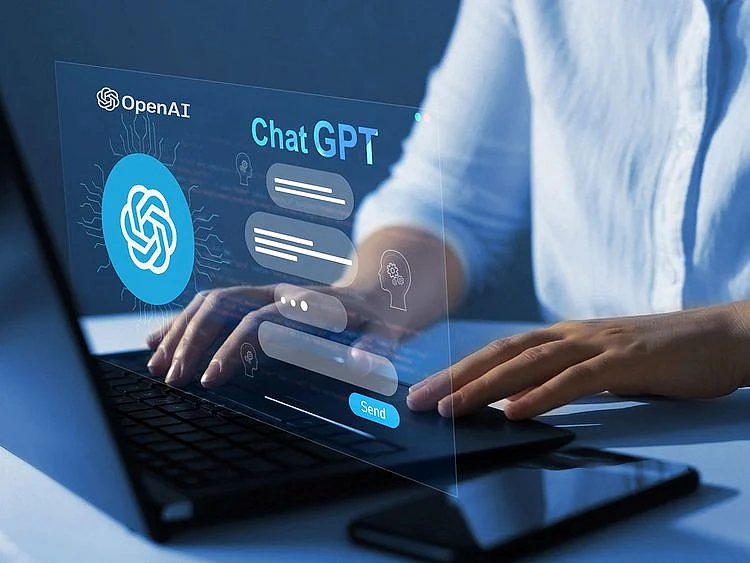Will GPTs and AI create a full-fledged DIY society?
Done right, new ideas and productions can stem from this AI-enabled GPT spread

It is obvious that these Generative Pre-trained Transformers (GPT) are spreading at an alarming speed. Hardly an hour passes before we hear about a new arena of application for GPT.
While it is not possible to speak of a backlash yet, there have been some voices, including that from Elon Musk, calling on governments to stop or slow down the further diffusion of GPT technology. Italy become the first country to press pause on GPT citing privacy and security concerns.
Yet, few of us believe that GPT and AI technologies will go away. The more people experience the capabilities of AI technologies across functions, the more will realize just how much this technology is set to expand their agency rather than contracting it.
What is happening is nothing short of a human agency revolution. We just became much more capable and regardless of our own capability.
Making creators of us all
The GPT moment marks a significant step into the rise of the Do-It-Yourself (DIY) society. Driven by increasing accessibility and usability of AI tools, the next phase will see an accelerated rise of DIY platforms. These are open-source collaborative platforms, think GitHub, driven by direct users’ prompts.
This will have several significant implications for various aspects of our lives, economy, and culture.
Already open-source platforms make it possible for individuals and small teams to access, collaborate on, and contribute to a range of projects. GPT platforms convert mainstream users into pseudo-creators.
Contrary to current sentiment, AI tools such as GPT will not kill jobs as much as it will enhance creative and innovative capabilities of workers. They will be able to develop unique solutions and create novel products that cater to niche markets, driving overall innovation and fostering an environment of continuous improvement.
It is worth noting that workers do not just sell their skills, but also their time, and AI enables workers to create more value for employers hiring their time.
Imagine affordable 3D printing machines operated by GPT prompts that enable hobbyists and professionals to design and manufacture their own prototypes. Think of a platform like Etsy, an online marketplace that allows independent artisans and crafters to sell their handmade, unique products directly to consumers.
Faster with ideas – and go to market
Such tools will amplify and simplify their ability to customize and produce at scale. The ‘maker culture’ will receive a big boost. More individuals will acquire the skills required to work with AI as co-workers (non-physical collaborative robots (cobots)), experiment with different materials and technologies, and create unique, innovative solutions or products.
An AI driven DIY society has the potential to reshape economies by altering traditional production and consumption patterns. As individuals become both creators and consumers, there will be a shift towards localized, decentralized, and personalized production.
Setting off an entrepreneur evolution
This can lead to new economic models, opportunities for entrepreneurship, and job creation in various sectors. It will also represent a greater democratization of technology and potentially greater globalization too. Such an environment fosters a sense of community and shared purpose, bridging gaps and promoting understanding among different groups and countries.
An inclusive DIY society will necessitate a rethinking of education and skill development. AI tools need to be integrated early into our schooling system, rather than being banned. School curricula should ensure that everyone learn how to use AI tools to enhance and expand their agency.
This is a critical set of skills for individuals to participate productively in a DIY society. Educational institutions will need to adapt their curricula and teaching methods to prepare students for this new reality.
Accept the GPT challenges
There are undoubtedly challenges to overcome, especially embracing the DIY mindset early on by academic and business leaders. There will be legal and ethical issues to consider too, such as IP rights, data privacy, and security concerns. Traditional copyright licenses will face a legitimacy crisis with AI enabled creativity giving rise to a new type of legal products that are the result of human-AI collaborations. ‘Creative Common’ licenses will become more popular as they allow creators to specify how their work can be used and shared by others, promoting a more flexible and collaborative approach to intellectual property rights.
For policymakers and regulators, the challenge will be in how to keep pace with these changes and how to ensure that the DIY society operates within a fair and responsible framework. For public administration, the challenge will be in how to overhaul public services again to cater for a DIY society.
With AI tools in the hands of citizens, present day digital services will look increasingly out of date. An entire new way of rethinking of government services will be required.
Network Links
GN StoreDownload our app
© Al Nisr Publishing LLC 2026. All rights reserved.